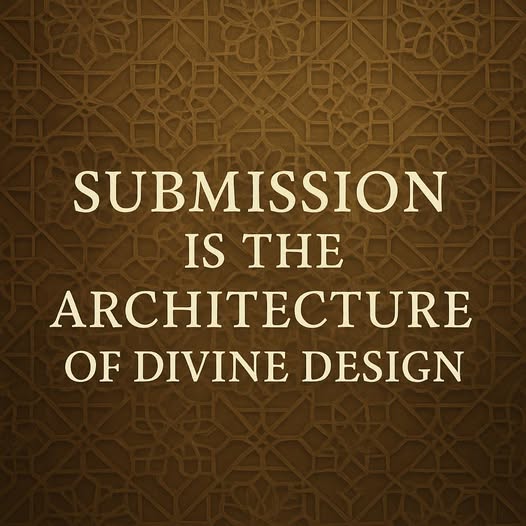
Introduction: A Unified Lens
To truly grasp the Almighty’s plan for humanity, we must move beyond fragmented views of history, religion, and scripture. What if the stories of Adam, Noah, Abraham, Moses, Jesus, and Muhammad (peace be upon them all) weren’t separate religious traditions—but chapters in a single, continuous divine system?
Systems thinking, a discipline from architecture and complexity science, offers a powerful lens to explore this unity. It shows how interdependent components—prophets, scriptures, laws, deviations, tests, and judgments—form a grand, cohesive design. This design isn’t random; it is the spiritual architecture of reality, engineered to guide humanity toward moral refinement and ultimate reward.
Religion as a System: Divine Engineering
If we view religion not merely as a set of rituals or cultural traditions, but as a system designed by God, its components become clearer:
- The Creator’s Goal: Paradise for the righteous
- The Test Environment: Earth, with limited time, choice, and consequence
- The Free Agent: Humans—gifted with intellect, conscience, and will
- The Guidance Mechanism: Prophets, revelations, moral examples
- Deviation Triggers: Ego, desire, ignorance, cultural drift
- Corrective Interventions: New messengers, signs, and purification
- Accountability Systems: Individual trials, societal tests, Day of Judgment
Like any well-designed system, this divine architecture responds to error. When truth is forgotten or distorted, a new prophet is sent—not to introduce a new religion, but to recalibrate humanity back to submission (Islam)—the core operating principle of the system.
Prophetic Pattern: A Recurring Cycle
A careful study of each prophet’s life reveals a universal pattern in divine missions:
- Commissioning – The prophet is chosen and receives revelation.
- Conveyance – He teaches with reason, love, and warning.
- Conflict – Most communities reject, ridicule, or fight back.
- Clarity – God grants miracles, protection, and moral clarity.
- Separation – Believers and rejectors become distinguishable.
- Judgment – A “mini Day of Judgment” unfolds: some are saved, others face consequences.
This is not mythology. It is divine design. A system engineered to separate humility from arrogance, sincerity from hypocrisy, and truth from falsehood. With the final messenger Mohammad , the prophetic era has come to an end.
Across scriptures—whether the Torah, the Bible, the Gita, or the Qur’an—there are verses that speak of conflict with disbelievers within specific historical and spiritual contexts. However, extremists distort these verses, stripping them from their context to justify violence and arrogantly assume the role of divine judgment. They ignore a crucial truth: such directives were tied to the presence of divinely appointed messengers. Without that authority, no one has the right to invoke these verses as a license for war or violence. Scripture must be read with wisdom, not weaponized through ignorance.
Deviations: The Shadow Side of Human Creativity
Human creativity—when disciplined—leads to progress, beauty, and innovation. But without humility, it becomes a force of distortion. Many deviations in religion weren’t born from evil intentions, but from unanchored interpretation and cultural pressure.
Examples include:
- The worship of angels and idols in pre-Mohammad Arabia
- The deification of Jesus in Christianity
- The personification of divine attributes in some Hindu traditions
These outcomes were unintended consequences—a term in systems thinking that describes results emerging from well-meant actions lacking full awareness of the system. They remind us why divine recalibration through prophets is necessary.
Submission: The Eternal Religion
The word Islam in Arabic means submission, not a brand or nationality. Every prophet preached this core truth:
“Submit yourselves, then, to God. Resist the devil, and he will flee from you.” — James 4:7 (Bible)
“Submit to God and be at peace with Him; in this way prosperity will come to you.” — Job 22:21 (Bible)
“Abandon all varieties of dharma and simply surrender unto Me alone.” — Bhagavad Gita 18:66
The Qur’an affirms:
“Abraham was neither a Jew nor a Christian, but a Muslim—one who submitted to God.” — Qur’an 3:67
Whether through the Hebrew shalam, Greek hypotassō, or Sanskrit śaraṇam, the truth remains: true religion has always been about surrendering to the One God.
Purification (Tazkiyah in Arabic): Prophets as Soul Healers
Prophets were not merely lawgivers. They were soul whisperers—guiding people to purify their hearts (Tazkiyah), shed arrogance, and rediscover their inner yearning for the Divine.
They taught that submission is not about blind ritual, but living remembrance. In their presence, religion transformed from burden to beauty, from duty to delight.
Their aim was not to create followers, but to awaken servants—those who walk humbly with God and reflect His mercy, justice, and wisdom in the world.
Final Prophet, Final Calibration
Prophet Muhammad did not introduce a new religion. The Qur’an commands:
“Then We revealed to you [O Muhammad], ‘Follow the religion of Abraham, inclining toward truth; and he was not of the polytheists.'” — Qur’an 16:123
He was asked to continue—not cancel—the prophetic tradition. Burial practices, fasting, prayer, and spiritual laws were clarified or restored. He was the final messenger sent to reconnect all the dots.
Conclusion: From Fragments to Framework
The stories of prophets are not isolated tales—they are chapters in a divine system. From Adam to Muhammad, from Moses to Jesus, every prophet served as a node in a grand feedback loop, recalibrating humanity toward God.
Through the lens of systems thinking, we see a unified architecture: one God, one plan, one test, one eternal home.
Our job is not to idolize the bricks of this architecture—but to understand the building.
Key Takeaways
- Islam (submission) is not new; it is the eternal path of all prophets.
- Religious deviation is part of the system’s cycle—prophets are sent to correct it.
- Systems thinking helps us see divine history as purposeful design, not confusion.
- Tazkiyah (purification) is central—religion aims to refine hearts, not just behavior.
- Prophet Muhammad was the final recalibration in this unified guidance system.

